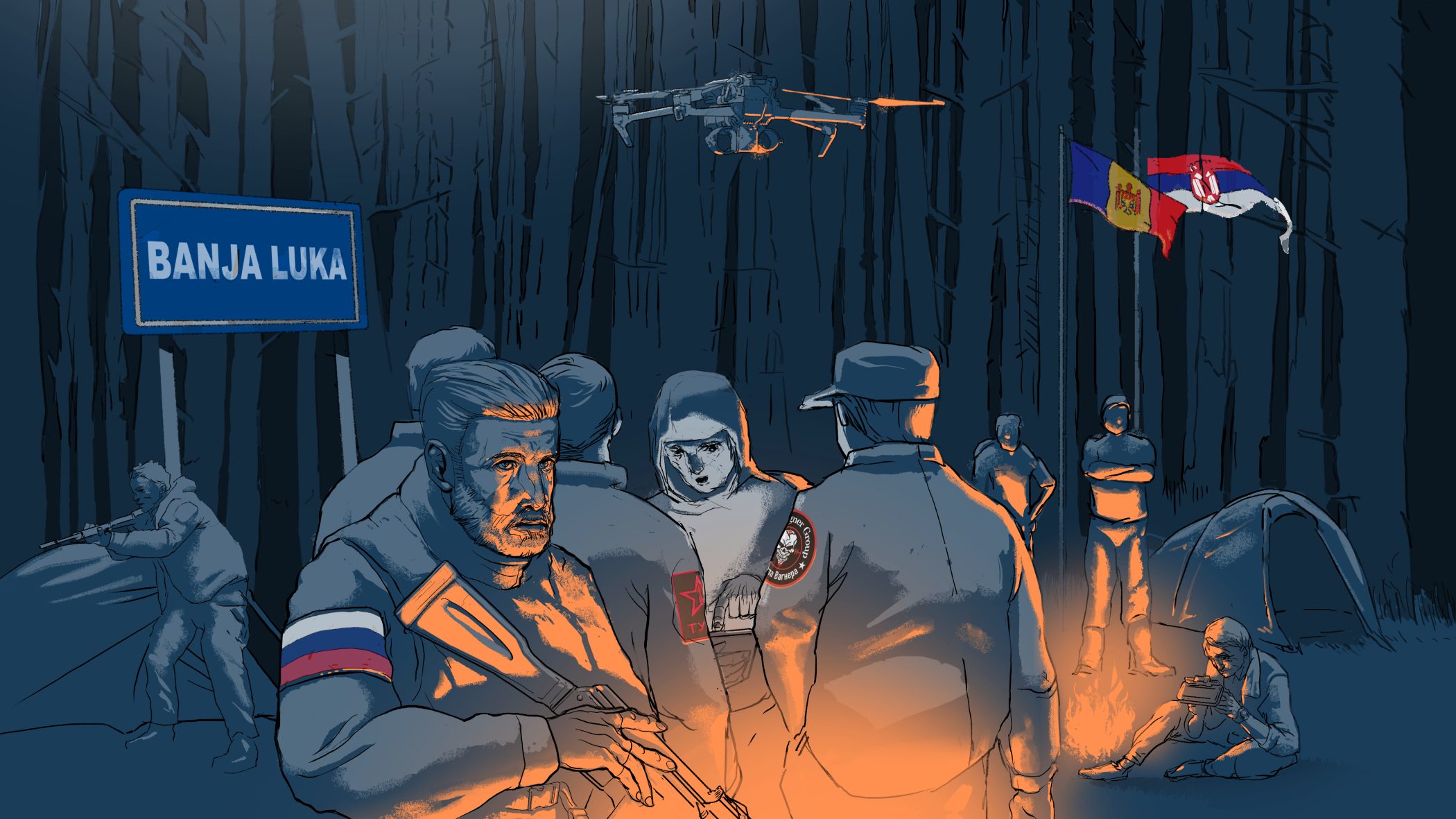This post is also available in: Bosnian
Maxim Rosca said he was recruited by a business associate of his wife.
“Don’t you want to go?” he recalled the man, Anatolii Prizenko, telling him. “To learn to defend yourself.”
The conversation took 41-year-old Rosca from his native Moldova to the Balkans, where he trained with Russian instructors in paramilitary camps hidden in woodland.
In an interview with the Moldovan investigative outlet CU SENS, Rosca described training first in the predominantly Serb-populated, pro-Russian Republika Srpska entity of Bosnia and Herzegovina and later in a village called Radenka, in eastern Serbia.
His fellow trainees were Moldovans. All of them had to hand over their phones and passports before taking part in combat drills, drone training and what Rosca described as “things like sports and psychology”.
For 10 days of training, Rosca said they were promised a fee of between $300 and $500; he was paid in crypto.
Less than a year later, Rosca is a prosecution witness in the Moldovan trial of three of his fellow trainees on charges of plotting mass disorder.
Prosecutors say members of the group participated in paramilitary training in Bosnia and Serbia between August 1 and 16, 2024 and August 22 and October 11. They have tied the instructors to the Russian mercenary group Wagner and a number of individuals sanctioned by the European Union.
The purpose, they say, was to disrupt Moldova’s presidential election held in October and November, in which pro-Western incumbent Maia Sandu defeated pro-Russian challenger Alexandr Stoianoglo.
“In Bosnia, they trained with drones and learned how to organise mass riots and how to provoke the police into a violent reaction,” said Moldovan MP Lilian Carp from the ruling pro-European Party of Action and Solidarity and chairman of the parliamentary security committee.
“Our authorities know exactly where the training took place, in which camps and how people got to those locations, how the instructors from the Wagner group got there, what they talked about and what type of training was held.”
Prizenko, who was arrested in February this year, is already under EU sanctions for allegedly “planning, directing, or engaging in, directly or indirectly, the use of coordinated information manipulation and interference” in France, on behalf of the Kremlin.
BIRN BiH has learned that authorities in Bosnia have opened their own case concerning the allegations.
Arrests
Tipped off by Moldova’s Security Intelligence Service, SIS, special organised crime prosecutors opened an investigation in September last year.
On October 11, Rosca was stopped at the border between Moldova and Romania on suspicion of having attended training in Bosnia.
In the same car were Vladimir Harcevnicov, Aliona Gotco, Ludmila Costenco and Iulia Ivanova, all fellow Moldovans. A search of the vehicle turned up disassembled drones, virtual reality headsets, radio equipment and instructions on how to produce explosives.
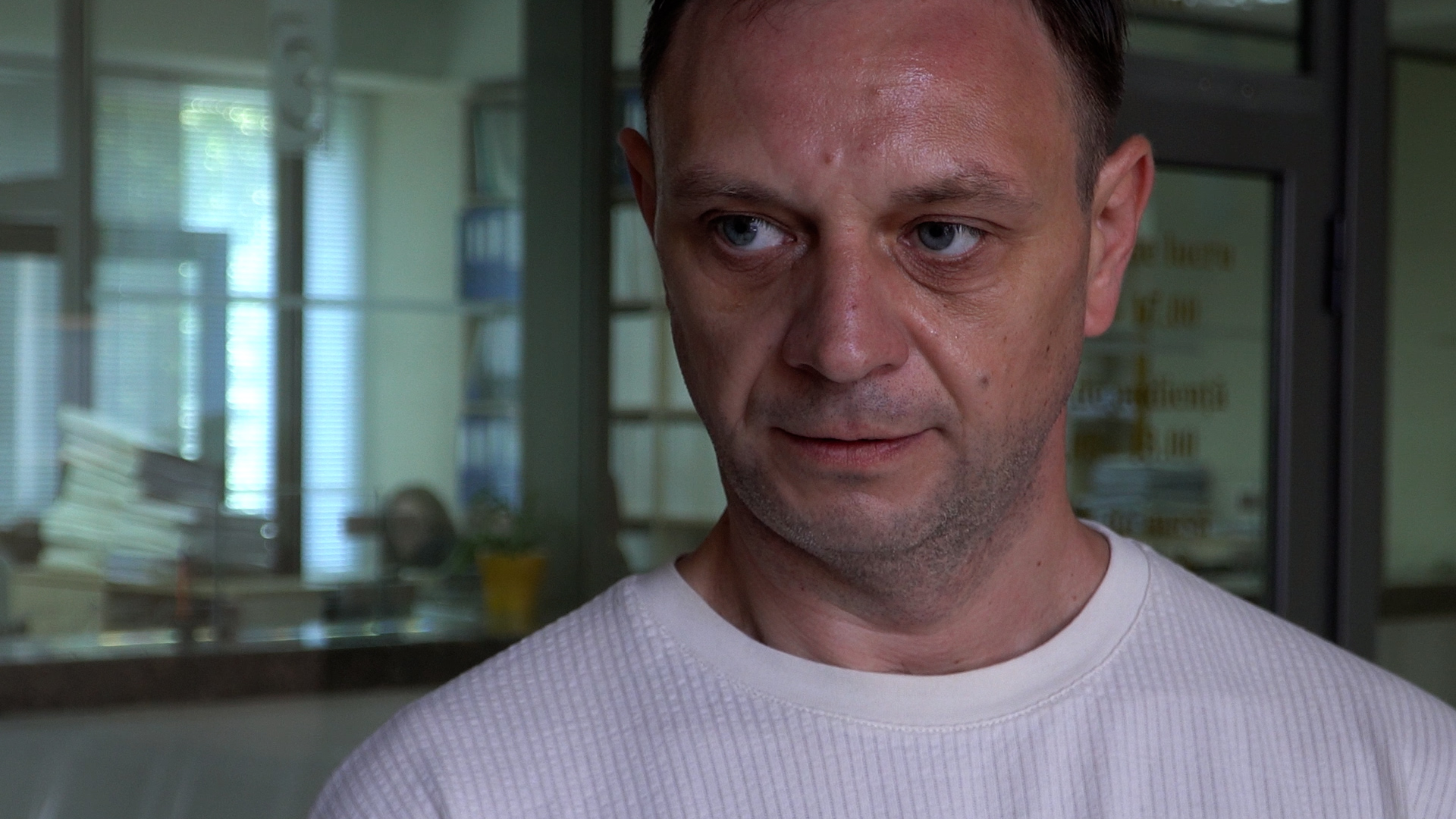
Maxim Rosca was at a training camp in the forest near Banja Luka. Photo: CU SENS
In October last year, Bosnia’s security ministry dismissed claims about paramilitary training camps on Bosnian territory, saying: “If such a thing really existed, Moldova would probably have informed us, requested information, warned us or sent a note of protest. We have never officially received a letter from them. When such a problem exists, anywhere in the civilised world, it is solved through interstate police cooperation, not fabricated media headlines that serve exclusively for internal political showdowns in Moldova.”
Yet in spring this year, Harcevnicov, Gotco and Costenco appeared in court in the Moldovan capital, Chisinau, accused of plotting mass disorder in Moldova.
Gotco, who is from the separatist Moldovan region of Transnistria and also holds Russian citizenship, denied any wrongdoing and wrote to CU SENS to claim the case against her was politically motivated. She did not respond to further requests for comment.
Harcevnicov, a 37-year-old convicted murderer, has also denied wrongdoing, while 53-year-old Costenco, who was born in Russia but spent most of her life in Moldova, told reporters she had simply been taking a holiday with her son: “I have nothing to do with what is mentioned in the news,” she said.
Paintball recruitment drive
In February this year, BIRN BiH visited Radenka, in Serbia, and found burnt pieces of paper, remnants of plastic tarpaulin and torched ground at the location where video and photographs previously showed tents set up last summer.
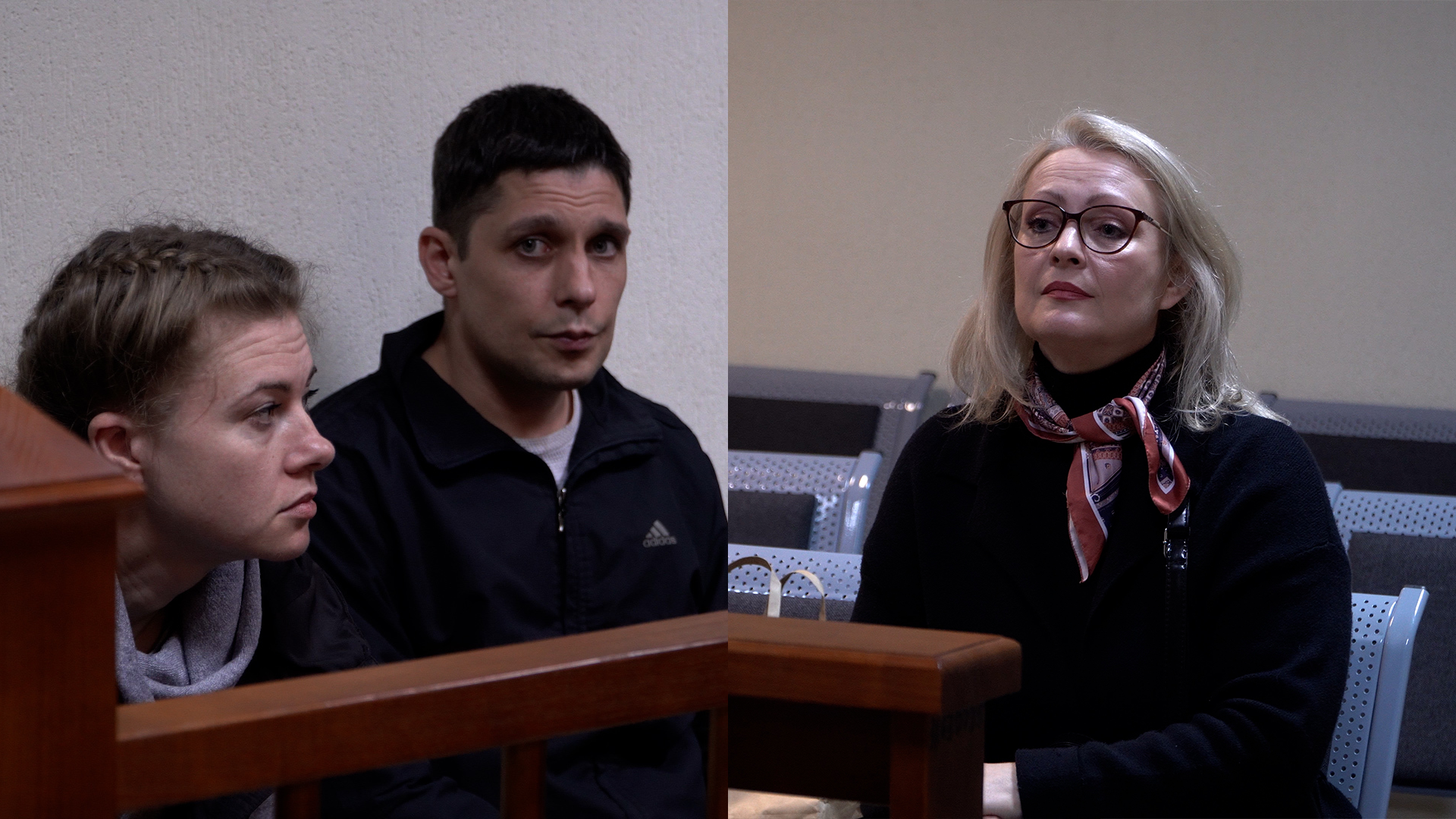
Aliona Gotco, Vladimir Harcevnicov and Ludmila Costenco in the courtroom. Photo: CU SENS
According to media close to the Serbian government, investigators found drones, VR headsets, Starlink satellite internet equipment and flammable liquids at the site. Neither the government nor the police have made any official comment.
By analysing videos and photos released by the Moldovan police, BIRN geolocated the site to an area a 10-minute drive outside of Radenka.
In February, 51-year-old Prizenko was arrested in Chisinau on suspicion of having recruited Rosca and organising training in Bosnia and Serbia.
Police accused him of identifying potential recruits during paintball tournaments in Moldova.
A lawyer for Prizenko declined to comment; he has already run afoul of authorities in Europe.
In December last year, the European Union sanctioned Prizenko, who publicly claimed responsibility for paying several Moldovan citizens to paint the Star of David on the streets of Paris in October 2023. The EU said the stunt had a “significant destabilising effect in the context of the conflict between Israel and Hamas” in Gaza.
Media reports at the time said the operation was conducted on behalf of the Russian intelligence service, GRU, with the aim of fuelling tensions in French society.
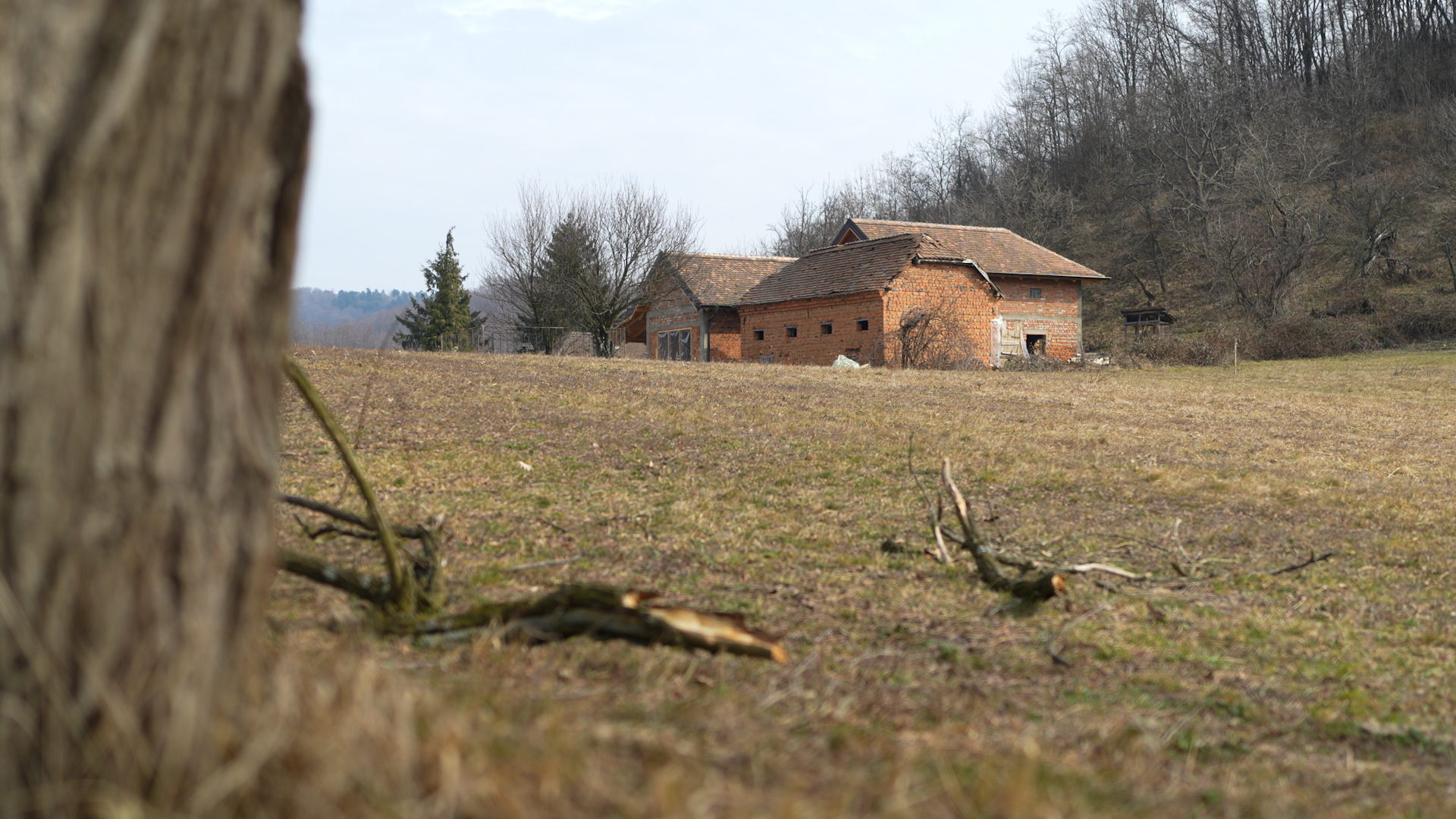
Camp location in Serbia. Photo: Detektor
Bulgarian neo-Nazi
Reports identified Bulgarian neo-Nazi Mircho Angelov as another participant in the Star of David operation.
He is among 13 individuals identified by the Moldovan secret service in October 2024 as involved in the paramilitary camps in Bosnia and Serbia.
Rosca said Angelov had brought him food at one of the training camps in the Balkans. Angelov could not be reached for comment.
Another person on the list is Mikhail Potepkin, who is also subject to EU, US and British sanctions for his alleged ties to the Russian mercenary group Wagner.
Contacted via VKontakte, Potepkin confirmed being the person named on the list but then ceased responding to requests for an interview.
Also on the list is Konstantin Goloskokov, who told the Financial Times in 2009 that he had taken part in a cyber attack against Estonia in 2007. He could not be reached for comment.
Moldova’s intelligence agency identified Potepkin and Goloskokov as ‘coordinators’ of the training camps. Among the alleged ‘instructors’ was Andrei Becker, who entered Bosnia on August 23, 2024, and founded an IT company called AE 777 the same day. The company remains active.
Another is Alexander Volkhonsky [previously Sotov], whom the anti-corruption project Dossier Centre has linked to Wagner operations in the Central African Republic.
Denial
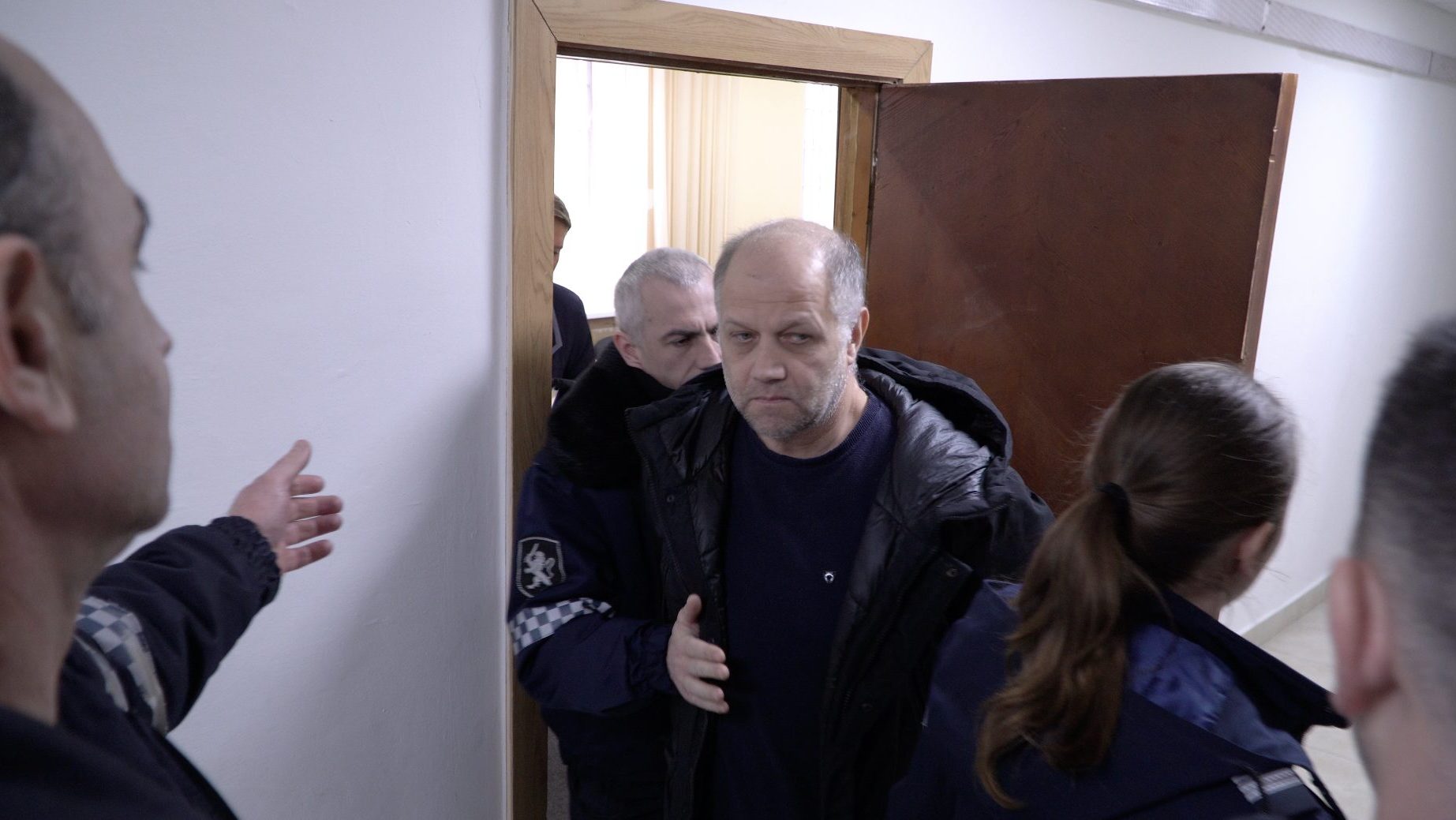
Anatolii Prizenco was arrested in February 2025 for recruiting camp participants. Photo: CU SENS
Pro-Russian officials in both Moldova and Republika Srpska have denied the existence of such training camps.
“The people in power have never presented any evidence, audio-visual or documented, so that we could say ‘Ah, we have a situation’,” said Vlad Batrincea, deputy speaker of the Moldovan parliament from the pro-Russian Socialists.
“It is all connected with political messages; there is no clearly visible material,” he said. “Fortunately, we have not seen any attempts to destabilise the Republic of Moldova.”
Prosecutors and security experts, however, say the operation can be traced back to Ilan Shor, a pro-Russian Moldovan politician and fugitive currently living in Russia.
In February, the prosecutor in charge of the case, Vitalie Chisca, said he had not yet been in touch with Bosnian authorities.
“Until now, we have not had any contact either directly or through other means,” he said.
“We have set ourselves the goal of obtaining as much information as possible at a certain stage of the criminal investigation, so that we can request as much information as possible from law enforcement authorities in Bosnia and Herzegovina.”
A spokesperson for the Bosnian state prosecution confirmed, however, that they had opened their own case.
